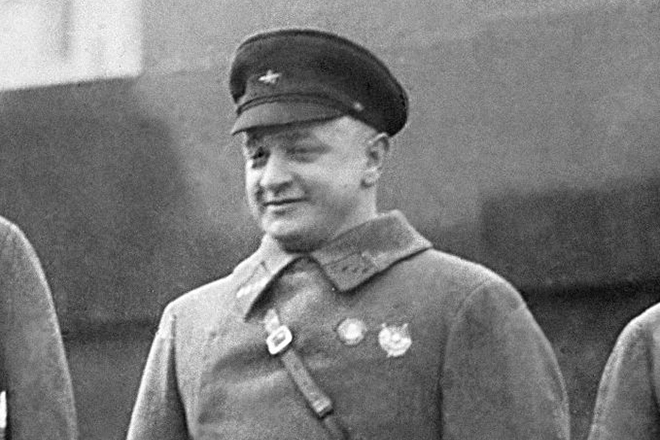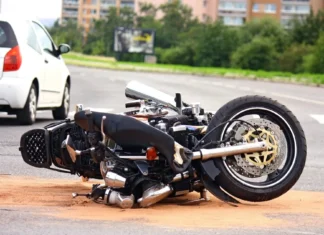
Crime 01/03/20 Case “Spring”: they wanted to arrest of Tukhachevsky in 1930
For more than three thousand group of cases in the late 20’s-early 30-ies in the former tsarist officers in Moscow, Leningrad and Ukraine were arrested and convicted of more than 10 thousand people.
it all started
According to the study of the historian of the Russian special services A. A. Zdanovich, the case of “Spring”, being under the personal supervision of Stalin, began operational development of the OGPU in Ukraine. In 1928, the KGB received information about the impending uprising there, which played an active role Poland (according to intelligence reports, the British for these purposes was transferred to the government of Pilsudski a large sum in pounds sterling).
on the Basis of the plan for the uprising, which became known OGPU, to start the rebellion had crossed the Soviet border Petliurists and then they were joined by units of the red army, which previously held the appropriate anti-Bolshevik propaganda work. Smuggled into Poland under the guise of a representative of the Ukrainian insurgent organization agent of the OGPU (former white officer) met with a confidant of Pilsudski and he instructed “rebel” on the methods of espionage and the organization of the uprising. In addition, the non-existent rebel organization, the poles handed over the batch of explosives and weapons.
Thus the intention of the poles to hold the rebellion in Ukraine was confirmed.
Officers-hypocrites
From the warehouses of one of the infantry regiments stationed in Ukraine of the 7th territorial division stole over 300 rifles and machine guns (later on the territory of the dislocation of divisions of the security officers withdrew from the territorial army and from relatives more than a thousand weapons).
however, Moscow began to receive reports of a number of double-dealing spies Ukrainian troops from the former white officers who podorevalis in cooperation with the Polish intelligence services. In the case of “Spring” (its other name “the Headquarters of the rebel forces from the left Bank”) was initially arrested on 17 of these secret agents, who supply the OGPU false information. All of them, on the reports of the security officers who had connections with the commanders of the red army.
the prisoners testified that teachers and military instructors of a number of Ukrainian military and civilian higher education institutions included in the counter-revolutionary organization. About this was immediately reported to the chief of the OGPU Vyacheslav Menzhinsky and his Deputy, Genrikh Yagoda. Menzhinsky, in turn, announced in a memo to Stalin that the Ukrainian counter-revolutionaries have ties in the chain of command of the red army in Moscow and Leningrad.
Mass arrests and reshuffle
In early October, 1930, V. Menzhinsky instructed to make mass arrests of the suspects in the case “Spring”. From the ranks of the red army was withdrawn, “dubious chain of command,” former white officers. Stalin personally informed about the results of the interrogations of detainees if they had indicated their communication with the commanders of the red army units located in Moscow and Leningrad.
the Ukrainian underground organization in the OGPU soon came to be called the all-Union military-officer counter-revolutionary organization with its center in Moscow. One of its leaders was named by the former tsarist General Andrei Snesarev, a former chief of the General staff Academy of the red army (the Andrew E. his involvement in this organization has not recognized). Stalin later personally will be his shot for 10 years in the camps.
Simultaneously with the arrests and interrogations of suspects in the case “Spring” was carried out personnel changes in the GPU, due to the necessity of getting rid of the people conducting the “wrong” line of work. It was reported even on the excesses committed by the employees of the OGPU in the production of the investigation “Spring”.
“Bonapartism” Tukhachevsky
Two arrested in the case “Spring” teachers of the Military Academy and officer of the General staff of the red army, testified on Mihail Tukhachevsky, accusing him of Bonapartism. In October 1930, Stalin and several Politburo members were present at the confrontations, arranged by the Marshal arrested, and then were interviewed three prominent military figure in the red army, Gamarnik, Yakir and Oak. The latter wavered in subversive activities attributed to Tukhachevsky. The arrest of the red Marshal was postponed.
That got the defendants in the case “Spring”
according to A. A. Zdanovich, hundreds of former tsarist officers who were arrested and convicted in the case “Spring” was shot. Many stayed in camps only a few years, and was released, being rehabilitated, some of them even continued to serve in the red Army high command positions.
Nicholas Syromyatnikov
Source:
© Russian Seven
Featured articles Share: Comments Comments on the article “Case “Spring”: they wanted to arrest of Tukhachevsky in 1930″ Please log in to leave a comment! br>
Share on Tumblr
















